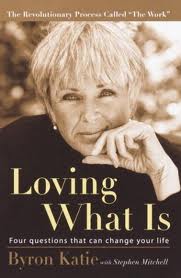
In celebrating my seventh year of private practice, I noticed that of all the books I’ve read, Loving What Is has made it into my daily life and practice. She calls it “The Work,” and it enables you to see what is bothering you in a whole new way – giving clarity to the muddle we create from the stories we carry and repeat to ourselves.
How to break this cycle that creates pain and depression? How to find peace and clarity? Joy? One good way is to allow yourself to confront the very thoughts and beliefs that are so difficult. Then watch the thoughts let you go, not the other way around.
Often the practice of “sitting” and “mindfulness” is with the intention (or hope!) of letting go of thoughts and patterns that don’t serve you. What if you turn the tables and ask these four potent questions?
- Is it true?
- Can I absolutely know that it’s true?
- How do I react when I think that thought?
- Who would I be without that thought?
The last question resonates the most with me. Try a little test to challenge (gently!) yourself. As you are busily chewing on a thought, opinion, or belief ask yourself if what you are thinking is true. Pause. Then ask who would you be without that thought. Byron Katie invites you to go much deeper in this inquiry.
It’s powerful and as you begin to prefer being with yourself without some of your thoughts, a sense of expansion and creativity is possible. As Ms. Katie says, “Everyone is a mirror image of yourself – your own thinking coming back at you.”
This process can’t be rushed, and all the shifts and changes happen right on time and not a moment before or later. It’s fun and surprising as you get used to it – ALL your thoughts are suitable for inquiry!
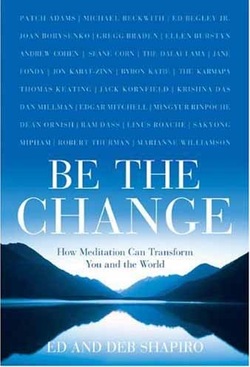
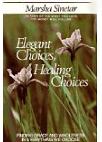

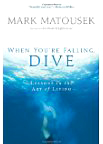

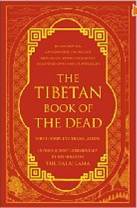
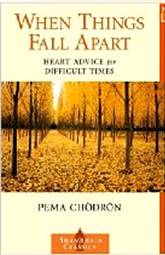
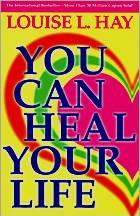
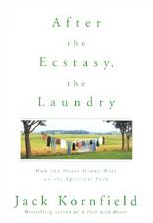
 RSS Feed
RSS Feed